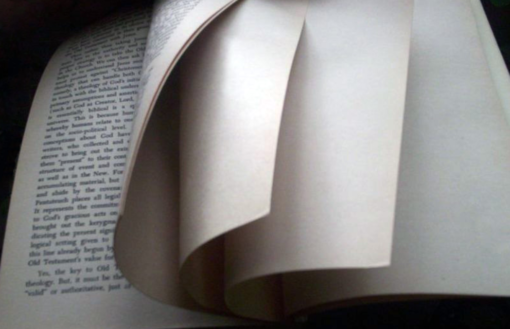 Image Courtesy:Wikimedia Commons
Image Courtesy:Wikimedia Commons
How does a writer respond at times of political chaos? What use are words before a lynching, before a criminal justice system that does not investigate murder filmed on camera, before a court that dismisses habeas corpus, the core legal demand on which Fundamental Rights are constructed? What relief will a book bring to those held in detention camps trying to prove their citizenship, or those put under the jackboot of the paramilitaries for asking their rights?
When the laws themselves seem powerless, what use is writing at all?
At times I almost believe this, almost. The rock I hold on to is the truth, and that is a slippery rock indeed.
The job of a writer – whether of fiction or non-fiction – is the search for truths. This may sound odd, especially when it comes to fiction which, by definition, is not factual. But we have all watched a movie, or read a novel, and come away with an insight, that makes sense of the world, of our experience, that is “true”. Years ago, while reading one of the lightest of authors, PG Wodehouse, I was struck by one sentence in his novel, Uneasy Money, “Don't you see that that’s the terrible thing about life, that nobody can do more than tell anybody anything? Life’s nothing but words, words, words; and how are we to know when words are true?”
The novel is about nothing important, but this sentence, this idea, is terribly important. Life is nothing but words, some that we trust, and some we don’t. And as George Orwell wrote, dishonest politics is often accompanied by dishonest prose, and that tyrannical regimes change the very meaning of words to imply the opposite of what they mean, so that a phrase – like in his Animal Farm– can go from “Four legs good, two legs bad” to “Four legs good, two legs better”.
The role of a writer is to bridge distances, to convey the truth of one person to another. We will never be able to truly understand another person, to live their lives, no matter how close we are to them. The story of humanity is of not understanding each other, of misunderstandings, and the effort to bridge them. Language, and the stories we tell, are how we do this. Hate and anger fester when we do not understand other people, when we are afraid of them, when the reasons for their actions seem inexplicable and therefore “dangerous”. When we cannot listen, we ascribe the worst motives to those on the opposite side; when they cannot understand us, they ascribe the worst of motives to us.
When we can neither speak nor listen, the only tool left for negotiation is violence.
Writers have no armies. Our words will not free innocents who are imprisoned, or bring the guilty to book. We cannot overthrow regimes, or stop the tanks. All we can do is to observe and understand, and tell the truths that we understand, so that we can talk to each other.
The enemies arraigned against us are large and many: the dishonest, the corrupt, the powerful. It is not in their interest that we understand each other. They would rather have us screaming at each other than talking. When we are angry, when we are incensed, we are easy to control; we give up our independence for the comfort of having the many, or the heavily armed, on our side. For the seller of guns, for the trader in bullets, a conversation is dangerous to his bank account. For a human, for us, for you and me, that gun and that bullet, is death.




